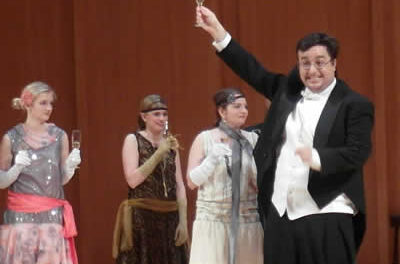“Everybody can be great, because anybody can serve…” So spoke Martin Luther King, Jr. in one of his powerful orations, quoted by William Henry Curry as Curry prepared the audience for the featured work of the evening. A sellout crowd filled the Durham Armory for “A Tribute to Martin Luther King, Jr.” Guests of the Durham Symphony Orchestra were the Concert Singers of Cary, providing the chorus in the second work on the program.
Music Director Curry introduced his composition, “Eulogy for a Dream,” by relating some of his own experiences from early childhood. He included in the introduction some of King’s quotations to complement those included in the work itself. He suggested that an appropriate alternate title could be “Funeral Music for MLK.” The effective narrator was Anthony Wilson, well known as a prominent member of the ABC11 Eyewitness News team.
Some sixty years ago Aaron Copland brought forth “A Lincoln Portrait” for speaker and orchestra, and “Fanfare for the Common Man.” Curry’s work elicited all the drama and emotional qualities of those two masterpieces. The orchestration was nothing short of astonishing, always somber and stately but never lugubrious or woeful. The orchestra was obviously highly prepared and committed. The sound was uniformly powerful. The listener was taken “to the mountaintop” (King) and brought part way back down into the “broad sunlit uplands” (Winston Churchill).
Lawrence Speakman’s Concert Singers of Cary filed onto the stage (over 100-strong) as grand anchors for the other major work, the Finale from Beethoven’s Symphony No. 9. Soloists for this “Ode to Joy” were soprano Patricia Philipps, mezzo Sarah Love Taylor, tenor Wade Henderson, and bass Don Milholin. As is normal in this piece, tenor and bass did the heavy lifting, here in stylish manner. Henderson and Milholin are well known to audiences in this area. With this level of performance, relative newcomers Philipps and Taylor will become just as celebrated. Curry and the players brought to this work the same enthusiasm and power that they had lavished on the earlier piece.
Few citizens of the twentieth century have received such honors as have been bestowed upon Martin Luther King, Jr. It is unlikely that he will ever receive a tribute more dignified and unpretentious than the one accorded him in the Durham Armory on a frosty January evening in A.D. 2011.











